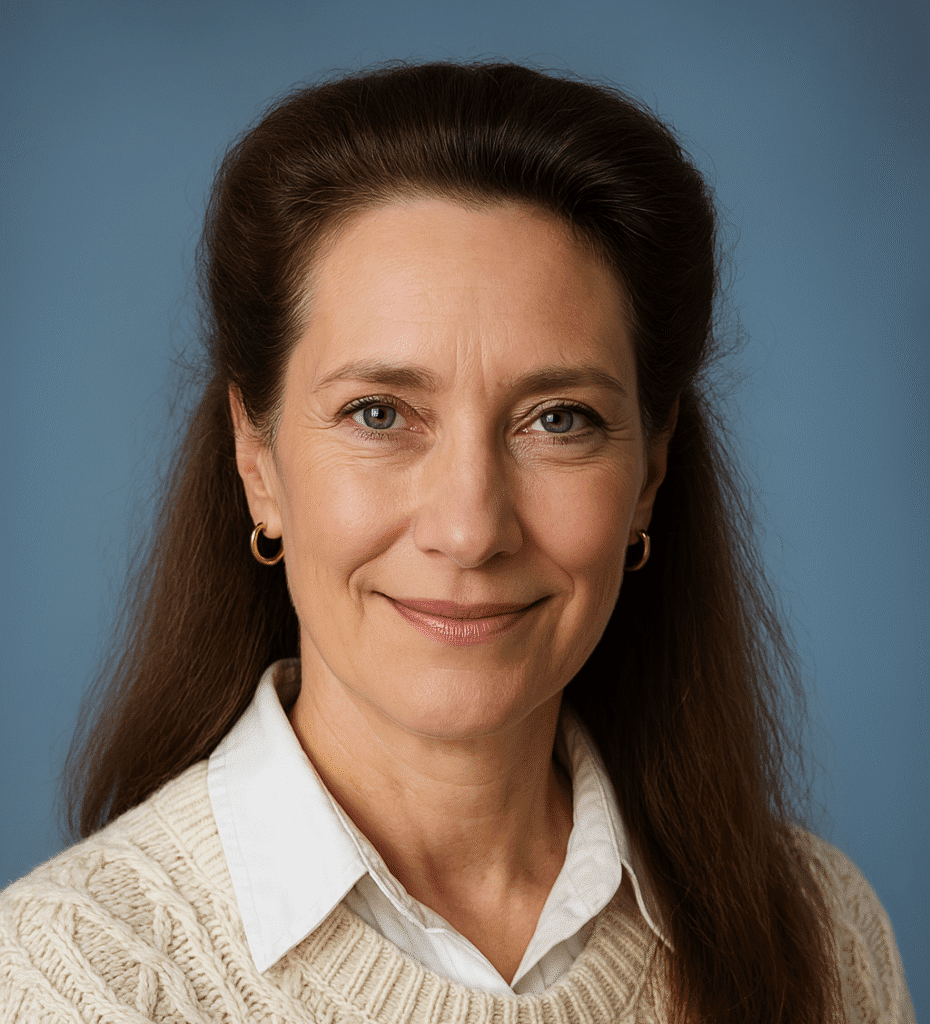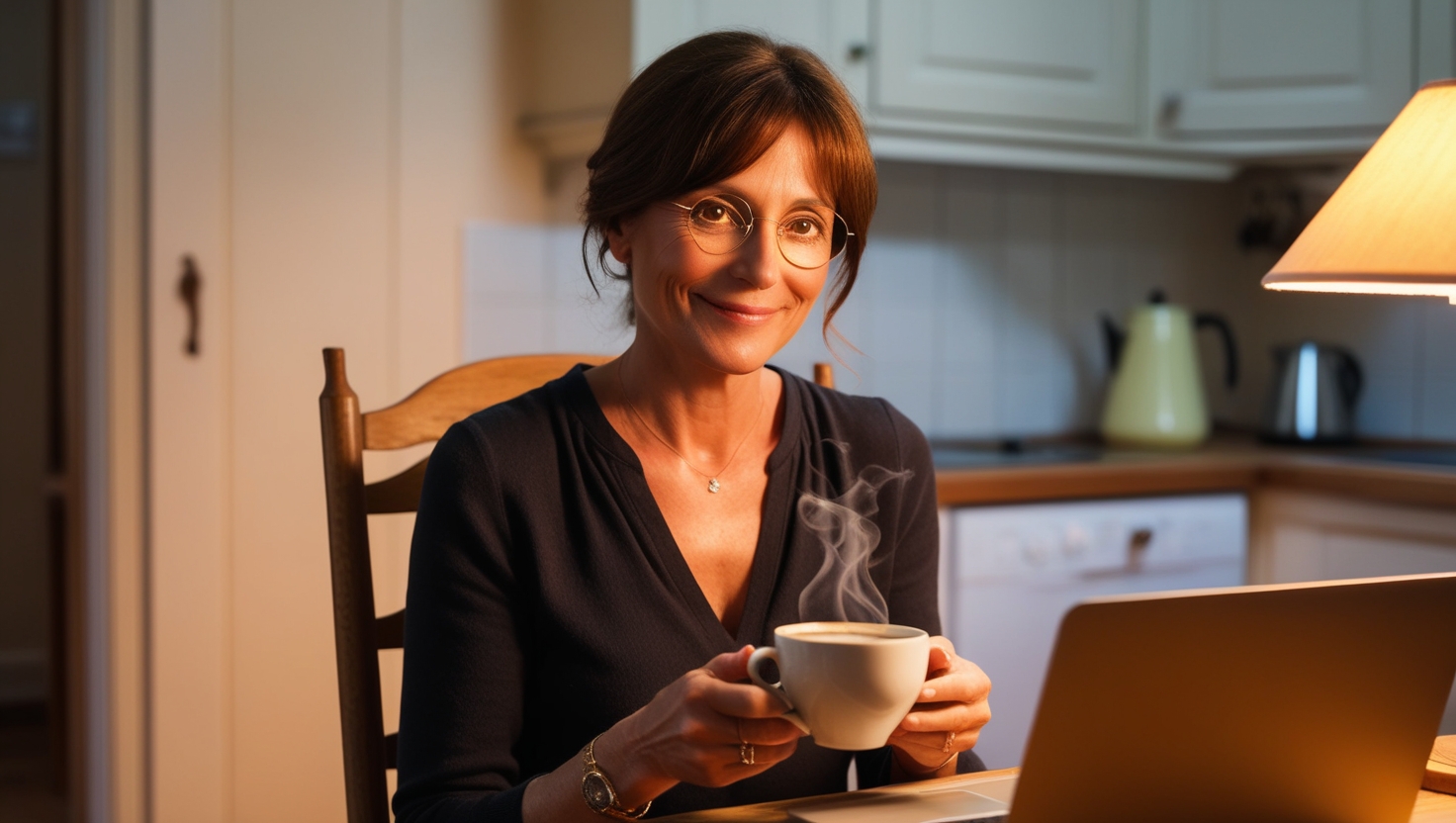Sometimes the best thing you can do is let your ducks waddle wherever they please while you focus on not drowning in the pond.
A Tsunami in a Duck Pond
Picture this: You wake up one morning thinking you’re the CEO of Duck Management Inc., only to discover that your ducks have unionised, your pond has sprung a leak, and someone’s changed all the rules overnight. Welcome to divorce, where your carefully orchestrated life suddenly resembles a nature documentary gone very, very wrong.
Maxine’s Story: The Entrepreneur Who Lost Her Compass (And Found Her True North)
Maxine Ashton had always been the woman with the plan. At 42, she’d built a successful marketing consultancy from her kitchen table, raised two teenagers who actually still spoke to her, and maintained a marriage that looked picture-perfect from the outside. Her life was a masterclass in organisation – colour-coded calendars, automated systems, and yes, metaphorically speaking, ducks that marched in perfect military formation.
Then came the morning that changed everything.
The coffee maker’s familiar gurgle filled the silence of their suburban kitchen, its rich aroma mingling with the lingering scent of yesterday’s dinner – rosemary chicken that now seemed like a relic from another lifetime. Max’s fingers trembled as she held the letter she’d found tucked under her laptop, the crisp white paper feeling like sandpaper against her skin.
“I can’t do this anymore,” it began. Twenty-two years of marriage, reduced to three pages of careful, lawyer-approved language.
The words blurred as her eyes filled with tears that tasted of salt and disbelief. Outside, she could hear their neighbour’s dog barking – the same golden retriever that had witnessed their children’s first steps in this very backyard. Everything looked the same, yet nothing would ever be the same again.
Max’s first instinct? Grab her planner and start making lists. “Lawyer consultation. Bank statements. Tell the kids. Update insurance.” Her pen scratched frantically against paper, the familiar ritual of organisation her lifeline in the storm. But as she wrote, something strange happened – the lists kept growing longer, more chaotic, like a hydra sprouting new heads with each task listed.
Three weeks later, she sat in her car outside her attorney’s office, engine idling, heat blasting against the November chill that seemed to have settled permanently in her bones. Her hands gripped the steering wheel so tightly her knuckles had gone white, and she could taste the metallic tang of anxiety in her mouth.
“Just breathe,” she whispered to herself, watching other people walk purposefully down the sidewalk – people whose lives weren’t imploding, who knew where they were going. The leather seat creaked as she shifted, trying to gather courage.
That’s when she saw them – a small family of ducks waddling across the busy street, completely oblivious to the honking cars swerving around them. No perfect plan. Just instinctual and intentional movement toward the pond on the other side of the road.
“Well, that’s either the most inspiring thing I’ve ever seen, or I’m officially losing my mind,” Max laughed, surprising herself with the sound. It was the first genuine laugh she’d had in weeks, and it felt like coming up for air.
Inside the law office, fluorescent lights hummed overhead as Max spread documents across the mahogany conference table. The papers rustled with each movement, creating a papery cacophony of her dissolving life. Her lawyer, Janet, smelled like expensive perfume and competence – a combination Max found oddly comforting.
“The hardest part,” Janet said gently, “isn’t the legal stuff. It’s learning to trust yourself again when everything you thought you knew has shifted.”
As Max drove home that evening, past strip malls and suburban lawns dotted with fallen leaves that crunched under her tires, she realised something profound: she’d spent so much energy trying to keep her ducks in a row that she’d forgotten to make sure that her row was heading in the right direction.
That night, she did something she hadn’t done in years. She turned off her phone, ran a bath hot enough to fog the bathroom mirror, and sat in the lavender-scented water until her fingertips pruned. The silence felt foreign after months of anxious planning, but gradually, she began to hear something underneath the quiet – her own voice, asking questions she’d been too busy to consider.
Who was she beyond wife and mother and successful entrepreneur? What did she want her next chapter to look like? The answers didn’t come in neat bullet points, but in fragments of dreams she’d shelved long ago, possibilities that made her pulse quicken with something that felt suspiciously like hope.
Over the following months, Max learned to embrace what she started calling “productive chaos.” Instead of rigid schedules, she created flexible frameworks. Instead of controlling outcomes, she focused on showing up authentically for each moment. Her business evolved, her relationship with her children became more spontaneous, and slowly – like morning mist lifting from a pond – a new version of herself emerged.
The ducks were still waddling every which way. But Max had learned something revolutionary: sometimes the most beautiful formations happen when you stop trying to force them and simply trust the natural flow of life.
Five Key Takeaways
1. Perfectionism Is the Enemy of Progress When your life is in transition, “good enough” isn’t just acceptable – it’s strategic. The energy you spend trying to make everything perfect is energy you could use for healing, growing, and building your new reality.
2. Your Support System Matters More Than Your Organisational Skills All the organisational tools in the world won’t replace the power of genuine connection. Invest in relationships with people who see your worth beyond your productivity levels.
3. Flexibility Is Your Superpower Rigid plans crack under pressure. Flexible approaches bend and adapt. Learn to pivot gracefully, and you’ll navigate uncertainty with confidence rather than anxiety.
4. Small Consistent Actions Trump Grand Gestures You don’t need to overhaul your entire life overnight. Daily acts of self-care, regular check-ins with your values, and incremental progress toward your goals will carry you further than dramatic life changes.
5. Trust Your Inner Compass External validation feels good, but internal wisdom keeps you on track long-term. Learn to distinguish between your authentic voice and the noise of others’ expectations.
The Bruised-Not-Broken Divorce/BreakUp Recovery EcoSystem
The Power of Putting Pen to Paper
Writing it out
Write about a time when something you thought was falling apart actually opened space for something better to emerge. Use all five senses to describe both the moment of chaos and the first glimpse of possibility. What did you learn about your own resilience?
The “Duck Check” Exercise:
Each evening, ask yourself three questions:
- What “ducks” did I try to force into line today that weren’t actually mine to move?
- Where did I show myself compassion when things didn’t go according to plan?
- What one small step can I take tomorrow that aligns with who I’m becoming rather than who I used to be?
As Maya Angelou once said, “Try to be a rainbow in someone’s cloud.” Sometimes, the most radical thing you can do during a life transition is to be that rainbow for yourself.
Feeling Overwhelmed by Uncertainty About Your Future?
If Sam’s story resonates with you, you’re not alone. Change – even positive change – can feel overwhelming when you’re in the thick of it. Take my “Are You Feeling Overwhelmed by Uncertainty About Your Future?” quiz to discover your unique navigation style and get personalised strategies for moving forward with confidence rather than chaos.
Frequently Asked Questions
Q: How do I know if I’m managing the divorce process well or just barely surviving? A: The difference isn’t in having everything under control – it’s in how you respond to the lack of control. Are you making decisions from fear or from values? Are you isolating or reaching out? Surviving becomes easier when you start making choices that honour your authentic self rather than just managing the crisis.
Q: What if my ex-partner is making it impossible to stay organised and focused? A: You can only control your own actions and responses. Set boundaries where possible, document what you need to document, and focus your energy on what serves your healing rather than what perpetuates drama. Sometimes the most organised thing you can do is disengage from chaos that isn’t yours to clear up.
Q: How do I explain to my children that our family structure is changing without scaring them? A: Age-appropriate honesty paired with consistent reassurance works better than false cheerfulness. Focus on what remains stable (your love for them, their security, their routines) while acknowledging that some things are changing. Children are remarkably adaptable when they feel safe and informed.
Q: I feel guilty for not being more upset about my marriage ending. Is this normal? A: Absolutely. Grief isn’t linear, and relief is a valid part of the process. You might feel sad about the end of something while simultaneously feeling hopeful about new possibilities. Both emotions can coexist, and both are completely normal responses to major life changes.
Q: When will I feel “normal” again, and what does that even look like? A: “Normal” after a major life transition isn’t about returning to how things were – it’s about creating a new baseline that honours who you’re becoming. Most people report feeling significantly more stable and confident 12-18 months after major changes, but healing isn’t a race. Your timeline is uniquely yours.
The Beautiful Mess of Becoming
Here’s what nobody tells you about keeping your ducks in a row during a divorce: the goal isn’t perfect alignment. It’s learning to find grace in the midst of chaos, strength in the face of uncertainty, and hope in the space between who you were and who you’re becoming.
Your ducks don’t need to march in formation. They just need to know you’re committed to showing up – for them, for your healing, and for the magnificent, messy, beautiful adventure of creating a life that truly fits who you are.
Sometimes the bravest thing you can do is stop trying to control the ducks and start trusting your ability to navigate whatever waters lie ahead. After all, the best stories aren’t about perfect journeys – they’re about imperfect people finding their way home to themselves.
The Bottom Line: When life turns your carefully organised world upside down, the secret isn’t better organisation – it’s better self-compassion, stronger support systems, and the courage to trust that you can handle whatever comes next, even if you can’t see the whole path from where you’re standing. Your ducks will find their way. Your job is to keep swimming.
If you need some support, have a look at these options:
The Divorce/BreakUp Recovery Protocol

Author Bio: Dr Margaretha Montagu – described as a “game changer”, “gifted healer”, “guiding light” and “life-enriching author” – is an experienced medical doctor, a certified NLP practitioner, a medical hypnotherapist, an equine-assisted psychotherapist (EAGALAcertified) and a transformational retreat leader who guides her clients through life transitions – virtually, or with the assistance of her Friesian and Falabella horses, at their home in the southwest of France.
Stress destroys Lives. To find out what you can do to safeguard your sanity by taking my insight-giving quiz, subscribe to my mailing list.

